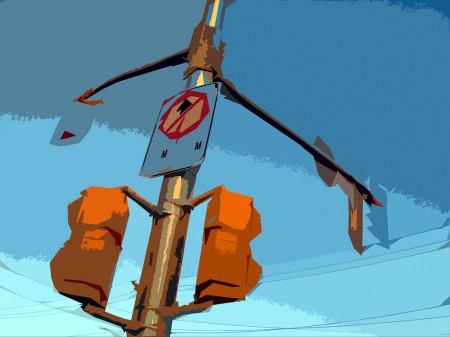There are aspects of Spore which are excellent, but far too much effort needs to be expended to keep the game from being absurdly frustrating.
When you visit other empires, you see things much as they ought to be. They have large numbers of attack and defense fleets, consisting of mother ships and fighters. These fleets will attack you if you enter their space. They will leave their space to attack nearby enemy colonies and thus capture or destroy them.
By contrast, regardless of the size of your empire, you will always be the only competent ship in it. Allied empires will provide one ship each, but these will behave like missile magnets, die almost immediately, and lead to the friendly empire blaming you for the loss of their ship. As such, it is up to you to personally defend your entire territory, as well as personally attack other systems (basically the only way to end wars once they start). Indeed, ending wars is a very tricky thing to do, especially considering that you can start one when your ship automatically returns fire on a ship that attacked you in an enemy system. Ending wars either requires conquering so many planets that the enemy sues for peace (only some races do this) or waging a genocidal campaign across their entire empire, which can easily take hours. Of course, whenever you are at war, you will be constantly attacked and obliged to manually defend whichever system(s) they have chosen to target.
There are also pirate attacks. These should ideally be ignored, since they are almost as much of a pain to fight off as attacks from rival empires and ignoring them has only a trifling consequence. Unfortunately, the only way to know for sure if it is money-stealing pirates or civilization destroying enemies attacking is by flying across the galaxy to check manually.
Even more maddening are ‘ecological disasters.’ In these, a random planet somewhere within your empire or those of your allies gets five sick animals of a particular type somewhere on it. Even if your empire consists of hundreds of interconnected worlds, you are the only being that can kill these animals. Fail to do so, and the ecosystem on the planet gets destabilized, eventually destroying your colonies. Also, killing too many of the healthy animals moving in herds with the sick ones causes the extinction and makes you start over, hunting sick animals of a different kind.
Overall, the game was billed as a big universe that you could explore and experiment with however you like. Unfortunately, the frustrations built into the game make that very challenging. Implementing the following suggestions would significantly improve things:
- After five ‘ecological disasters,’ you win a badge. Having this badge means that your colonies have learned to deal with these things on their own. At the most, they should ask for some money with which to fund the five animal cull.
- If you accidentally start a war by firing upon a ship, you should have the chance to apologize diplomatically and pay compensation to avoid full-scale fighting.
- It should always be clear whether pirates or an enemy empire are attacking you.
- Enemy empires should be more willing to end wars.
- Your colonies should be more capable of defending themselves.
- Alternatively, much more powerful weapons should be available late in the game, so as to diminish the frustration of destroying fleet after identical fleet.
- Multiple AI modes should exist for escorts. In at least one, they should flee when near death.
- The game should make the status of ongoing battles clearer. At present, there is no easy way to tell when you have actually lost control of a star system.
- One option to consider is giving colonies two options for wealth production. In one mode, they behave as in the current game: they produce ‘spice’ which you need to personally fly around to collect and sell. In another mode, they produce spice which is sold automatically through intermediaries. You get about 30% of the profits.
Reducing the degree to which the player needs to micomanage the galaxy would probably do the most to improve this game. Hopefully, future patches will shift things somewhat in this direction.


